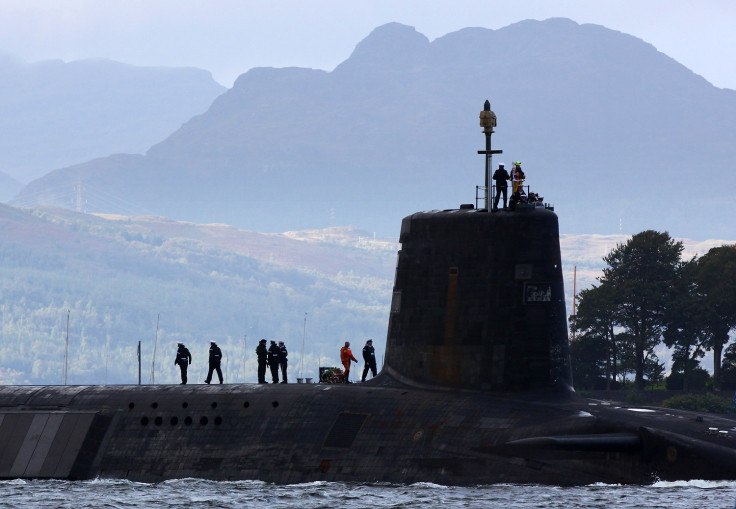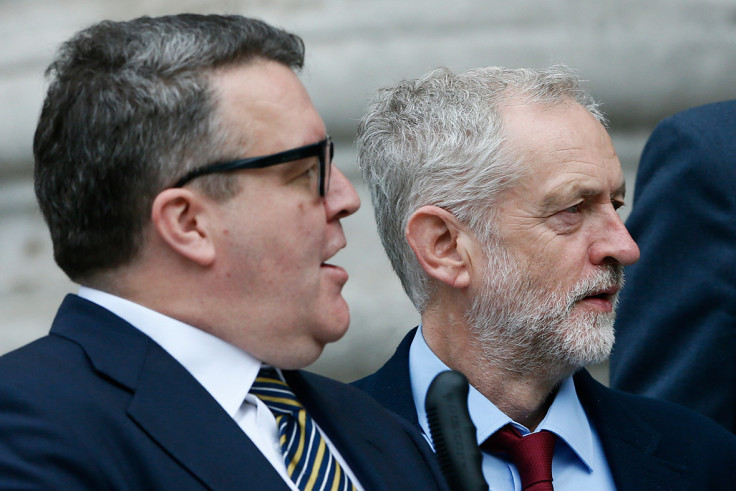Labour trident row: GMB Scotland chief warns 'tens of thousands' of jobs could be axed

Tens of thousands of jobs could be scrapped if the Trident nuclear deterrent is not renewed by the UK government, according to the chief of GMB's Scottish branch.
Gary Smith issued the warning to IBTimes UK with just days to go before Labour leader Jeremy Corbyn is due to address an anti-nuclear weapons rally in London.
Smith was joined by Labour MPs Kevan Jones and John Woodcock at the union's Trident successor programme conference in Newcastle on 25 February.
What is Trident?
Trident is the name given to the UK's fleet of nuclear submarines that carry – and would launch – the nation's nuclear arsenal.
The fleet consists of four Vanguard-class submarines capable of carrying 16 Trident II D-5 ballistic missiles that give the programme its name.
Based in Clyde, Scotland, at least one submarine is always deployed while the others undergo maintenance and take part in training exercises.
If MPs vote to renew the fleet it would be ready for service in 2028. The government puts the cost of replacing Trident at £20bn but critics say it is much higher than that.
That is one of the reasons why Trident is a political hot potato, the other being jobs. About 6,700 military military staff and civilian workers are based at HM Naval Base Clyde.
The event was also attended by local councillors and representatives for workers linked to the nuclear system from Barrow, Devonport, Faslane, Coulport, Rosyth, Clydeside, Derby and Merseyside.
"The GMB conference today was a conference of workers, we are not playing student politics," Smith declared. "This is not a debate for the wine bars of Islington and Edinburgh – this is real life for the workers and their communities."
He added: "This is not a fight we picked. The people who started this argument clearly have no idea of the massive ramifications for not renewing Trident and they don't understand how the whole shipbuilding industry and defence sector is linked together."
The comments come ahead of Corbyn's speech to Campaign for Nuclear Disarmament (CND) supporters on 27 February. Thousands of anti-nuclear activists are expected to march in Central London over the weekend.
News of the Labour leader's attendance at the event reignited his party's internal row over Trident. Corbyn and shadow defence secretary Emily Thornberry, a fellow unilateralist, want to scrap the system.
But Barrow and Furness representative Woodcock, shadow foreign secretary Hilary Benn and former shadow transport secretary Michael Dugher are just some of the Labour MPs opposed to Corbyn's position.
Watson calls for a vote in the Commons

Labour's deputy leader Tom Watson intervened in the row on 24 February when he urged David Cameron to hold a vote on the issue on the House of Commons. Watson claimed a majority of Labour MPs would back renewing Trident.
"I'm in favour of a continuous at sea nuclear deterrent. My party's policy favours a continuous at sea nuclear deterrent," he told the EEF national manufacturing conference.
"Our trade unions, who represent thousands of workers in the 450 companies who form the supply chain that make it, are in favour of Trident."
He added: "You may have read that this view is not shared by all our MPs. But I have made it clear to David Cameron that if he honours his promise of a vote on Trident I will support it.
"There are enough Labour MPs to guarantee that the vote is won. I know the prime minister is currently pre-occupied with the European Referendum, but I happen to believe that the sooner this vote is tabled, the greater certainty we can give to industry, our allies and our enemies, that British industry will deliver the Trident project in good time."
Fellow Labour affiliate and donor Unite are also in favour of renewing Trident. But a large majority (65%) of Labour members are opposed to the nuclear missile system, according to a recent analysis conducted by Election Data.
© Copyright IBTimes 2024. All rights reserved.






